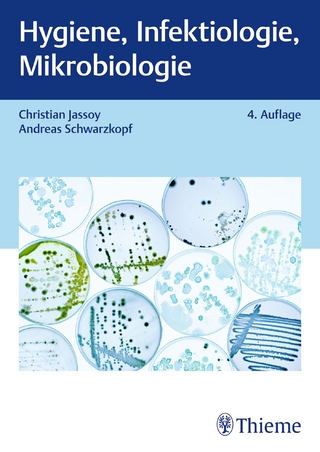
Essentials of Microbiology
Seiten
2016
Arcler Education Inc (Verlag)
978-1-68094-529-4 (ISBN)
Arcler Education Inc (Verlag)
978-1-68094-529-4 (ISBN)
Provides an introduction to microbiology. Microbiology is the study of all living organisms that are too small to be visible with the naked eye. This includes bacteria, archaea, viruses, fungi, prions, protozoa and algae, collectively known as “microbes”. These microbes play key roles in nutrient cycling, biodegradation, climate change, the cause and control of disease, and biotechnology.
Microorganisms and their activities are vitally important to virtually all processes on Earth. Microorganisms matter because they affect every aspect of our lives – they are in us, on us and around us. Microbiology is the study of all living organisms that are too small to be visible with the naked eye. This includes bacteria, archaea, viruses, fungi, prions, protozoa and algae, collectively known as `microbes’. These microbes play key roles in nutrient cycling, biodegradation/biodeterioration, climate change, food spoilage, the cause and control of disease, and biotechnology. Most living things can be classified into prokaryotes or eukaryotes depending on whether their nuclear material (for example DNA) is surrounded by a membrane or not. Archaea and bacteria are prokaryotes. Most animals (including humans) and plants are eukaryotes. Protozoa, fungi, yeasts, and algae are eukaryotes. Viruses are a little different. Traditional classification systems do not classify viruses as living organisms. However in practise they are considered microorganisms. The study of viruses is called virology. Microbiology therefore includes the study of both prokaryotic and eukaryotic microorganisms. In practise the majority of microbiology is concerned with bacteria and/or viruses although eukaryotic microbiology is also a very important branch of microbiology. Many diseases of animals (including humans) and plants are caused by bacteria, viruses, amoeba, and fungi. Bacteria are important in probiotics, they are used in food production (e.g. yoghurt and cheese) and biotechnology. Yeasts and fungi are important in food and drink production (e.g. wine, beer, bread) and are also used to produce important pharmaceuticals (e.g. antibiotics).
Microorganisms and their activities are vitally important to virtually all processes on Earth. Microorganisms matter because they affect every aspect of our lives – they are in us, on us and around us. Microbiology is the study of all living organisms that are too small to be visible with the naked eye. This includes bacteria, archaea, viruses, fungi, prions, protozoa and algae, collectively known as `microbes’. These microbes play key roles in nutrient cycling, biodegradation/biodeterioration, climate change, food spoilage, the cause and control of disease, and biotechnology. Most living things can be classified into prokaryotes or eukaryotes depending on whether their nuclear material (for example DNA) is surrounded by a membrane or not. Archaea and bacteria are prokaryotes. Most animals (including humans) and plants are eukaryotes. Protozoa, fungi, yeasts, and algae are eukaryotes. Viruses are a little different. Traditional classification systems do not classify viruses as living organisms. However in practise they are considered microorganisms. The study of viruses is called virology. Microbiology therefore includes the study of both prokaryotic and eukaryotic microorganisms. In practise the majority of microbiology is concerned with bacteria and/or viruses although eukaryotic microbiology is also a very important branch of microbiology. Many diseases of animals (including humans) and plants are caused by bacteria, viruses, amoeba, and fungi. Bacteria are important in probiotics, they are used in food production (e.g. yoghurt and cheese) and biotechnology. Yeasts and fungi are important in food and drink production (e.g. wine, beer, bread) and are also used to produce important pharmaceuticals (e.g. antibiotics).
Patricia Marques obtained her PhD form University College Dublin in 2010. Her interests are on Microbiology and Parasitology. She is currently working as a Postdoc at University of Maryland Baltimore, USA on Chlamydia infections.
| Erscheinungsdatum | 20.03.2018 |
|---|---|
| Sprache | englisch |
| Maße | 152 x 229 mm |
| Themenwelt | Medizin / Pharmazie ► Medizinische Fachgebiete ► Mikrobiologie / Infektologie / Reisemedizin |
| Naturwissenschaften ► Biologie ► Mikrobiologie / Immunologie | |
| ISBN-10 | 1-68094-529-7 / 1680945297 |
| ISBN-13 | 978-1-68094-529-4 / 9781680945294 |
| Zustand | Neuware |
| Haben Sie eine Frage zum Produkt? |
Mehr entdecken
aus dem Bereich
aus dem Bereich
und Erste Hilfe an Bord
Buch | Softcover (2024)
MWV Medizinisch Wissenschaftliche Verlagsgesellschaft
CHF 55,90


